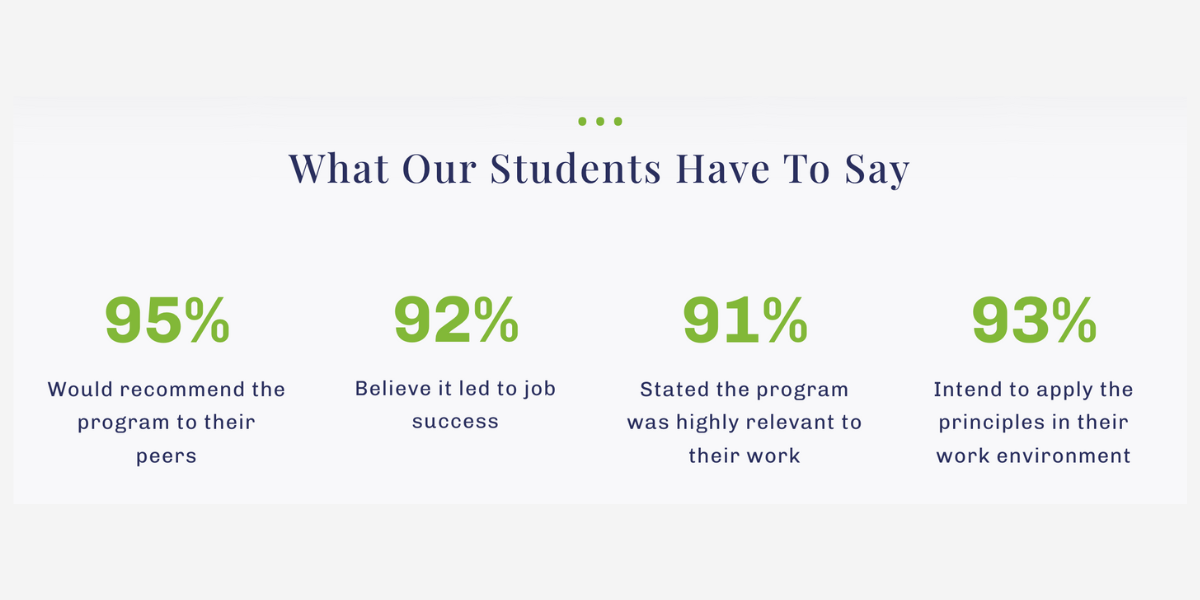Free Guide And Slide Deck: Convince Your Boss And Get Your Coach Training Funded!
Get an easy-to-read downloadable PDF of this blog post AND a powerful Pitch Slide Deck to seal the deal. Don’t miss this opportunity to take your career to new heights!
[15 minute read]
Why should you endeavor to get your boss to invest in your coach education and training? The reasons are compelling. By securing your employer’s support, you not only enhance your own professional and personal growth but also contribute significantly to your organization’s success.
Read on for our comprehensive take on getting buy-in from your employer!
Table of Contents:
- Proving the ROI of Coach Training
- Coaching Culture Statistics
- Coaching and Employee Engagement
- Coaching and Happier Workplace Culture
- Coaching vs. Consulting
- Pitching Coach Training To Your Manager
- Making Your Case for Coach Training
- Preparing Your Presentation
- Solidifying Your Case for Coach Training
- Fostering An Environment of Growth with Coaching Education
Coach training isn’t just an individual pursuit; it’s a strategic move that yields tangible benefits for both you and your workplace. Join us as we explore the myriad advantages and effective strategies to demonstrate the return on investment (ROI) that coach training brings to the table, creating a win-win scenario for all stakeholders.

Diving Into Coaching Culture
The ICF defines coaching as the thought-provoking and creative process where coaches collaborate with clients to inspire them to maximize their personal and professional potential. Its goal is to unlock an individual’s untapped sources of productivity, leadership, and imagination for personal advantage.
Like any strategic goal, coach training requires guidance from an expert and commitment from both parties to be executed successfully and obtain remarkable results.
Whether it’s sports, business, or life, the need for a coach has always been a question of when, not if. The answer to that question has become increasingly apparent as the business landscape has shifted at a breakneck pace.
And the reason more companies are investing in coaching is because of the proven and significant ROI it yields. Coaches are now seen as strategic partners who are there to enhance leadership effectiveness and drive organizational performance.
As the democratization of coaching is quickly taking hold, more company leaders and decision-makers have become interested in the ROI they now see with coaching. Many higher managers see it as the best way to develop employees and improve engagement.
Because of the results that coaching delivers, organizations are more and more devoted to giving their managers throughout the ranks access to coaching. Coaching brings many direct benefits to the bottom line
Building a coaching culture paves the way for leaders to increase employee engagement, create leadership development programs, and develop high-performance teams. It takes away the “how do we get there” problem that leaders often face.
The coaching culture approach provides a solution that works across all levels of management and is adaptable to all industries. Developing a coaching culture within your organization meets you where you are and gives you the tools to make a real difference.

ROI of Incorporating a Coaching Culture Into Your Organization
In the 2001 Metrix Global case study, 77 percent of respondents noted that coaching significantly impacted at least one of the nine business measures used in the workplace, concluding that executive coaching produces a 788 percent ROI based on factors like employee retention and productivity.
Another study conducted in the same year by the Manchester Review also found that executive coaching boosted their team’s ROI by almost six times the cost of investment spent on coaching.
Similarly, the ICF discovered that 86 percent of organizations saw an ROI with coaching engagements, while 96 percent of those who underwent executive coaching said they would do the process all over again.
Coaching is also found to positively impact personal development. In 2022 data obtained from the ICF, 87% of individuals who received coaching reported a boost in their self-confidence, while 70% noted an improvement in their work performance, communication skills, and professional relationships.
According to the ICF, a strong coaching culture positively influences employee engagement and financial performance. These findings were recognized after nearly two-thirds of respondents from organizations with strong coaching cultures rated themselves as highly engaged, while another 60 percent of respondents reported their 2013 revenue to be above that of their industry peer group.
In another research study conducted by the Human Capital Institute along with the ICF, coaching culture was also found to have contributed to 54% of high-performing organizations, with notable indicators like senior leadership bench strength, high-performer retention, and employer brand attraction.
Free Guide And Slide Deck: Convince Your Boss And Get Your Coach Training Funded!
Get an easy-to-read downloadable PDF of this blog post AND a powerful Pitch Slide Deck to seal the deal. Don’t miss this opportunity to take your career to new heights!

Empower Vs. Power Over
Aside from the notable ROI companies received from investing in coaching, coaching is an ideal approach for different generations in the workplace to communicate and meet halfway.
Coaching is about achieving results through mutual respect and shared empowerment vs. a top-heavy approach where team members feel their managers have been taught to extract results by yielding power over them. This is especially true for younger generations who expect the opportunity to contribute and participate.
As new generations continue to join the workforce, the differences in values, qualities, and traits undoubtedly make it difficult for groups of people with varying age differences to close the gap of miscommunication.
Based on data found by Gallup, 54 percent of Gen Z and young millennials feel that they lack engagement with their more senior counterparts, which is a higher percentage than older generations. And because of that, many of them experience high levels of stress and burnout, which affects their work performance and makes it harder for managers to handle the team.
Coaching bridges this gap as it becomes a medium to improve employee engagement. This was shown in the research findings conducted by Engelsbruger among others. It showed that companies who invested in coaching, along with selective recruitment and training, reduced the level of uncertainty while increasing collaboration in the workplace, fostering an environment and mindset that encourages open innovation.
When employees have a strong desire to learn things and are proactive in the innovation process, it facilitates team learning, performance review, and promotion of ideas. So, in essence, the outcome and impact of coaching aren’t only beneficial for improving self-development and awareness but also for helping organizations set and achieve goals.

Coaching for a Happier Workplace Culture
Coaching can also be instrumental in building trust and psychological safety in the workplace. It provides a supportive and confidential space for individuals to explore their thoughts, emotions, and challenges.
Trust is the foundation of any personal, social, or professional relationship. It’s the binding factor that builds connections among humans and creates a network of communities. When it comes to the workplace, trust is what makes employees feel that it’s safe to take riskier paths, make suggestions, and express themselves freely. It enforces an environment where they feel that they can willingly collaborate and communicate.
As found in a study by the Harvard Business Review, people who worked in companies where trust is valued reported 76 percent more engagement, 50 percent higher productivity, and 40 percent less burnout than those working in companies with low trust.
And because coaching helps create an environment where team members feel trusted, supported, respected, and comfortable expressing themselves, it leads to improved well-being, reducing stress and increasing job satisfaction.
Moreover, one-on-one coaching often opens up a safe and confidential space for employees to consider differing opinions and get coaching on strategies for engaging in healthy discussions without fear of retribution or negative consequences, creating a healthy work environment.

Misconception Between Coaching and Consulting
In an ideal workplace setting, all team members, not just managers with direct reports, would be trained in coaching, know how to coach and be coached. This shared skill set helps anyone who needs to communicate and collaborate to achieve trust and safety throughout the ranks to achieve a healthy balance that comes from a well-established coaching culture.
But there still exists many misconceptions about coaching, and not many managers are aware of the difference between coaching, consulting, mentoring, and training in the workplace.
Many managers don’t see the value in investing in coach training for employees because they see themselves as competent enough to provide that form of support. Instead, managers feel that they are responsible for coaching their staff mainly because they define it as a means of supervision, behavior correction, and extra training.
The same findings were found in a 2016 Harvard study where, after surveying around 3,000 leaders, 24 percent of the participants apparently overestimated their skills as coaches. It was otherwise known as the David Dunning and Justin Kruger effect where it was observed by these psychologists that incompetent people often fail to realize their own deficiencies or shortcomings while also ignoring that skill as more effectively executed by others.
Too often, the term coaching is used as a catch-all word for ‘helping people solve problems, achieve goals or improve behaviour. But the notion of simply ‘helping people’ with training, corrections, supervision, and advice significantly misrepresents coaching.
Many people use the terms coaching and consulting interchangeably, though they are not the same thing. Consultants are subject matter experts who listen to their clients to understand the person’s problem and assess whether they have a solution to offer. Coaches, on the other hand, are people who bring out a person’s potential so that they can come to the realization of doing things differently to get the result that they are looking for.
And because they don’t know what they’re doing, they may lead their employees wrongly. In a Harvard Business Review survey, it was found that although there are managers who provide constant feedback (also known as always-on managers), if they coach ineffectively, it affects the performance of their team members negatively.
Always-on managers do more harm than good to their team, as the survey found that they degrade employee performance by up to 8 percent. This is mainly because constant yet inaccurate feedback tends to be overwhelming and misplaced. On the other hand, if employees work with expert coaches or managers who know how to coach effectively, it generates positive results like creating more engaged and highly motivated employees.
Your Key Takeaways:
Here’s What You Can Share With Your Boss:
- Coaching is the answer to building an engaged workplace.
- Coaching fosters mutual respect and shared empowerment among generational employees.
- Coaching is a proven investment that yields significant ROI.
- Coaching positively impacts personal development.
- Coaching is instrumental in building trust and psychological safety in the workplace.
- Coaching helps improve employee engagement and performance.

Free Guide And Slide Deck: Convince Your Boss And Get Your Coach Training Funded!
Get an easy-to-read downloadable PDF of this blog post AND a powerful Pitch Slide Deck to seal the deal. Don’t miss this opportunity to take your career to new heights!
Pitching Coach Training to Your Manager
Though coaching is a proven investment, as noted by many studies; unfortunately, not enough organizations recognize it as a means of personal development that warrants investment, or brings enough ROI. Or, to put it simply, not enough organizations make an effort to invest in their employees’ growth.
One study found that 59 percent of companies surveyed in 2018 noted that they hadn’t allotted a budget for employee training. Ironically, in a 2021 study by Gallup, 48 percent of employees stated that they’re willing to leave their present job if offered a position in an organization willing to invest in their learning and development. That being said, here are a few actionable steps you can take to create a business case for coach training within your organization.
Make Your Case
It’s natural for managers to be skeptical about certain training programs because their main priority is ensuring the company’s employees are only exposed to environments aligned with the organization’s values. For that reason, employees need to articulate their intention to invest in paid training to their boss because it demonstrates a proactive commitment to personal and professional growth.
When making your case, some important questions to use as a guide are:
- What is my goal?
- What makes this important to me now?
- How will it affect the company?
- What are its long-term effects on the team?
- What are the inclusions of this coaching program?
- Has it yielded results for other employed individuals? If so, what are they?
Your Key Takeaways:
Send Your Boss These Stats to make a business case for your coach training:
- 80% of individuals who received coaching reported a boost in their self-confidence as per a 2021 ICF data.
- 77% of respondents noted that coaching significantly impacted at least one of the nine business measures used in the workplace like employee retention and productivity as per a 2001 Metrix Global case study.
- 70% noted an improvement in their work performance, communication skills, and professional relationships.
- 60% of respondents reported an increase in their 2013 revenue than that of their industry peer group, as per ICF data.
- ICF coaching culture contributed to 54% of high-performing organizations, with notable indicators like senior leadership bench strength, high-performer retention, and employer brand attraction.
By gathering all related information and clearly outlining the benefits of the training, its alignment with the company’s goals, and the potential positive impact on job performance, an employee showcases their dedication to adding value and reinforces their value as an asset to the organization. Transparent communication fosters trust and collaboration, making it more likely for the boss to support and invest in the employee’s development, ultimately benefiting both the individual and the company.

Prepare for Questions
Another crucial step to take is to prepare for possible questions. Anticipating and addressing potential concerns or queries leaves no room for doubt as it allows managers to understand the goal of the coach training fully.
By providing well-thought-out responses, dedication to making the training a strategic investment for both personal growth and the company’s success is easily conveyed. This proactive approach reassures managers, fostering trust and increasing the likelihood of obtaining support for more training endeavors. Here are a few questions to expect and how best to answer them.
1. How does this coaching training align with our company’s goals and needs?
To effectively respond to the question, it’s crucial to emphasize the training’s direct relevance. Start by highlighting the specific skills, competencies, or knowledge the coaching program will equip you with, and then connect these to the company’s objectives.
Clearly articulate how these newfound capabilities will contribute to achieving goals, solving challenges, or improving overall organizational performance. Providing concrete examples of how your enhanced skills will be applied can further solidify the alignment, showcasing your commitment to driving success in alignment with the company’s vision.
For example: This coaching training aligns directly with our company’s goals. It focuses on developing leadership skills, improving communication, and enhancing team collaboration, all of which are essential for achieving our strategic objectives. By investing in this training, I aim to contribute more effectively to our team’s success and help us meet our targets efficiently.
2. What’s the return of investment (ROI) for this training? How will it benefit the company financially?
When answering this question, it’s essential to convey a compelling and quantifiable perspective. Explain that while the ROI may take time to assess and measure, you can start applying your new coaching techniques soon after training begins. The training lays the foundation for substantial long-term gains. Emphasize how the enhanced skills and knowledge will lead to increased efficiency, better decision-making, and improved problem-solving—factors contributing to reduced operational costs and increased productivity.
Highlight potential scenarios where these improvements could translate into financial benefits, such as faster project completions, higher client satisfaction leading to retention, or innovative solutions that open new revenue streams. By painting a clear picture of the training’s potential financial impact, you underscore its value as an investment in the company’s future prosperity.
For example: The ROI for this training extends beyond financial gains. While it may not have an immediate monetary impact, the long-term benefits are substantial. By improving my skills and performance, I’ll be better positioned to contribute to revenue growth, cost savings, and enhanced client satisfaction. Additionally, my increased effectiveness as a team member will positively influence team productivity and morale, which of course, is money in the bank!
3. How will you balance your workload while attending this training?
Addressing this question is crucial as it demonstrates your commitment to maintaining productivity and ensuring a smooth transition during your absence. To answer effectively, outline a clear plan for workload management. This plan should include strategies for task delegation, setting clear priorities, and maintaining open communication with your team to ensure minimal disruption.
Emphasize your proactive approach to mitigating potential challenges, reinforcing your dedication to personal growth, and fulfilling your responsibilities to the highest standards. This provides reassurance to your employer and showcases your professionalism and organizational skills, which are valuable qualities in any workplace.
For example: I’ve already considered the workload aspect. I plan to manage my responsibilities efficiently during the training period by delegating tasks, setting clear priorities, and collaborating closely with my team. Moreover, the skills I acquire from the training will help me streamline my work processes, potentially reducing the time required for certain tasks in the long run.
In addition, when you are investigating the right coach education program for you and your organization, be sure to choose one that is designed to fit into the schedule of busy people who work full time. For example, The Coaching Academy For Leaders offers training delivered in microlearning modules over a period of time to ensure digestible learning that does not put the participant into overwhelm with long class hours or heavy assignments.
This will give your boss confidence that you are not setting yourself up to be away from the office for long periods of time or consumed by coursework that will take you away from your day-to-day responsiblities.

Solidify Your Case
Although coaching is a great way to hone employees, failing to acquire the best program can be just as damaging as not undergoing coaching training. Subpar programs may lack the depth and tailored approach needed to deliver meaningful impact, so choosing a training program that genuinely aligns with organizational goals and fosters substantial ROI is essential.
Genuine coach training is designed to provide results-oriented coach training, focusing on personalized development plans, effective communication, and problem-solving strategies tailored to every individual’s needs.
To help strengthen the case when presenting to managers, employees should emphasize the substantial disparities in coaching program effectiveness. Gather enough research to compare the pros and cons of each coaching program to underscore the importance of selecting a coaching training that yields significant results.
Fostering an Environment of Growth With Coaching
Professional coaches are catalysts for innovation, new possibilities, goals, and accomplishments. But the surprising problem with coaching is that it’s not just a ‘natural born ability.’
It’s not just a function of a job description that can be performed without being trained in the required skill set.
At the end of the day, it’s still best to work with skilled, trained, and certified internal coaches who can work with external coaches and managers who want to use coaching as a leadership style to create a holistic coaching culture within their organization – one that is much more likely to be successful and provide an ROI.
And that’s simply because coaching conversation models and coaching competencies that professionally trained coaches use allow employees of all ranks to get to the heart of the complex human dynamics before they can lead to confusion, misunderstanding, disengagement, and the inevitable layers of disappointment and conflict that may ensue from there.
Trained coaches help individuals build the self-awareness needed to grow, transform, advance, and create meaningful impact not only for their personal careers but also for the whole team.

Summing It Up
The statistics and research presented here leave no room for doubt. The ROI of incorporating a coaching culture into your organization is not just a concept; it’s a reality backed by concrete numbers. With a reported ROI of up to 788 percent, coaching can transform your workplace, enhancing employee engagement, boosting productivity, and fostering innovation.
Coaching is the bridge that spans generational gaps in the workplace. It empowers employees, facilitating communication and collaboration across age groups, ultimately leading to a more harmonious and productive work environment.
When it comes to proving the ROI of coach education training to your boss, we hope you’ll consider putting The Coaching Academy for Leaders on your shortlist. Our unwavering emphasis on leadership coaching, coupled with our impressive track record and proven ROI, makes it the ideal investment for both your personal growth and your organization’s success.

In your quest to secure support for coach education and training, remember that the right fit coach education program is not just a choice; it’s a strategic move towards a brighter and more prosperous future for both you and your organization.
So, take the step towards transformative leadership and reap the undeniable rewards that coaching brings to the table. Your boss, your team, and your bottom line will thank you for it.
Your Key Takeaway:
Use These Additional Resources To Pitch Your Case!
Getting Buy-In for Professional Development:
Building Strong Coaching Cultures – The Benefits
- Building Strong Coaching Cultures for The Future – The Human Capital Institute
- Creating A Coaching Culture 101: A Guide To Leveraging Coaching Results in Organizations – Corry Robertson
- The Manager’s Role In A Coaching Culture – Corry Robertson
How To Become A Certified Professional Coach
Free Guide And Slide Deck: Convince Your Boss And Get Your Coach Training Funded!
Get an easy-to-read downloadable PDF of this blog post AND a powerful Pitch Slide Deck to seal the deal. Don’t miss this opportunity to take your career to new heights!





0 Comments